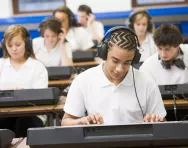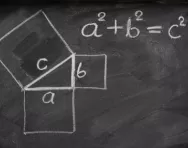Important update from TheSchoolRun
For the past 13 years, TheSchoolRun has been run by a small team of mums working from home, dedicated to providing quality educational resources to primary school parents. Unfortunately, rising supplier costs and falling revenue have made it impossible for us to continue operating, and we’ve had to make the difficult decision to close. The good news: We’ve arranged for another educational provider to take over many of our resources. These will be hosted on a new portal, where the content will be updated and expanded to support your child’s learning.
What this means for subscribers:
- Your subscription is still active, and for now, you can keep using the website as normal — just log in with your usual details to access all our articles and resources*.
- In a few months, all resources will move to the new portal. You’ll continue to have access there until your subscription ends. We’ll send you full details nearer the time.
- As a thank you for your support, we’ll also be sending you 16 primary school eBooks (worth £108.84) to download and keep.
A few changes to be aware of:
- The Learning Journey weekly email has ended, but your child’s plan will still be updated on your dashboard each Monday. Just log in to see the recommended worksheets.
- The 11+ weekly emails have now ended. We sent you all the remaining emails in the series at the end of March — please check your inbox (and spam folder) if you haven’t seen them. You can also follow the full programme here: 11+ Learning Journey.
If you have any questions, please contact us at [email protected]. Thank you for being part of our journey it’s been a privilege to support your family’s learning.
*If you need to reset your password, it will still work as usual. Please check your spam folder if the reset email doesn’t appear in your inbox.
The parents' guide to secondary school: GCSE options

When you’re looking at potential secondary schools for your child, GCSEs may seem a distant prospect. But although it’ll be several years before they choose their exam subjects, it’s a good idea to get your head around the subjects that are offered to make sure they’ll have a decent range of options available to them.
What are ‘options’?
The term ‘options’ is used to describe the subjects children can choose to take at GCSE level. Children usually choose their options towards the end of Year 9. They then spend Years 10 and 11 studying these subjects, leading up to their GCSEs in the summer term of Year 11.


Year 6 to 7 transition packs
- English & Maths transition packs
- Practise journalistic writing, figurative language, persuasive text and more
- Revise key maths methods and concepts
Which subjects are compulsory at GCSE level?
There are three ‘core subjects’ that children have to study in KS4, with the vast majority going on to take GCSEs in these subjects. These are:
Students in Welsh secondary schools also have to study Welsh (for native speakers) or Welsh second language.
In addition, students have to study three ‘foundation subjects’ at this level, but they don’t necessarily take GCSEs in them:
All schools are also required to provide religious education and sex and relationships education in KS4, but students don’t have to take GCSEs in these subjects.
What options are available to your child?
There’s an enormous list of subjects that pupils are able to take GCSEs in, ranging from Mandarin Chinese to child development to performing arts. But realistically, the range of subjects available is fairly narrow in most schools.
There are four ‘entitlement areas’ in KS4, and schools have to ensure that they offer at least one subject in each of the four areas. The entitlement areas are:
- The arts (including art and design, dance, drama, and media arts)
- Design and technology
- Humanities (history and geography)
- Modern foreign languages
These subjects aren’t compulsory, but students must be able to take an approved qualification – usually a GCSE – in a subject from each of the four areas, if they want to. This means that most pupils will take at least seven GCSEs.
What factors affect your child’s options?
Many students (and parents) are surprised by how limited their GCSE options are. For example, although English, maths and science are the only mandatory GCSEs, schools might make other key subjects, such as history or geography and a modern language, compulsory.
Pupils will be limited by the range of subjects offered by the school. If a subject has proved unpopular in the past, with poor take-up at GCSE level, a school may decide not to offer it any more. The more obscure or vocational subjects, such as law and electronics, are less likely to be offered than foundation subjects like design and technology, history and geography. The subjects on offer will also be influenced by the specialisms of the teachers; for example, the modern language GCSEs available will depend on the teachers’ main languages. If there’s a course that your child is desperate to do and it isn’t offered at their school, they may be able to study it elsewhere, such as an another nearby school or a local college.
Some options may be influenced by your child’s aptitude and ability. For example, it’s quite common for only the brightest students to be allowed to take triple science GCSE. Timetabling also plays a part; for instance, if music and drama lessons take place at the same time, your child will have to choose which subject they’d rather study.
What to consider when choosing GCSE options
In some respects, your child’s GCSE options may seem relatively unimportant; after all, they can specialise later at A level or at university. But although their GCSE choices are unlikely to have much impact on their future direction, it still pays to invest some time in making the right choices.
Many Year 9 children have no idea what career they might eventually go into, and if this is the case, it makes sense for your child to choose as broad a range of subjects as possible. A good rule of thumb to keep their future options open is to take at least one subject from each of the four entitlement areas, on top of the core subjects. Universities often prefer applicants who have a wide range of GCSEs in conventional subjects such as history, geography and the sciences, rather than more specialist subjects like media studies or psychology.
If your child does already have a career in mind, or is leaning towards studying a certain subject at GCSE, encourage them to look at the entry requirements for a university course or other training in that area. Taking specific subjects may put them at an advantage when they’re applying for further education.
If your child thinks they might want to take a science-related subject later on, it’s sensible for them to take at least double science at GCSE. Some schools and colleges won’t let students take science A levels unless they have double or triple science GCSE.
Perhaps the most important thing, though, is for your child to choose subjects that they’re good at and will enjoy. Try to discourage them from choosing a course because their friends are doing it, or because they like the teacher; friendships don’t always last, and teachers may move on, leaving your child stuck with a subject that they don’t actually like.
What about the EBacc?
The English baccalaureate, or EBacc, is not a separate qualification, but a group of five core academic subjects studied at GCSE level. Schools are ranked in league tables according to how many students achieve the EBacc, and it’s considered a strong combination of subjects that is looked upon favourably by universities and employers.
The EBacc subjects are:
- English
- Maths
- Double or triple science
- History or geography
- A language
To achieve the EBacc, students must get a grade A* to C in each of the five subjects. If your child is unsure about their future career direction, taking the EBacc subjects will keep their options open.
Getting help with GCSE options
Choosing which subjects to take can be tricky, but there’s usually plenty of information available to help you and your child whittle their options down.
Schools normally hold an options evening, where you can meet the teachers and discuss what taking a GCSE in their subject involves.
Talk to teachers at parents’ evenings to find out how your child is doing in that subject and whether they’d recommend they take it at GCSE.
Speak to pupils who are taking, or have taken, GCSEs in the subjects your child is considering. Ask them what it’s really like to study the course; for example, how much homework do they get? Is there coursework, or just a final exam? What do they like and dislike about the subject?
If your child has a specific career or higher education qualification in mind, arrange a meeting with the school careers advisor to see if there’s a particular combination of GCSEs that they should be taking. Use careers websites to find out more about routes into the careers that your child might consider.
Encourage them to make a list of pros and cons of each subject, taking into account things like how easy or difficult they find it, how much homework they’ll have to do, what grades pupils typically get in the subject, how many go on to take an A level in the subject, and so on.
Above all, don’t panic! Remember that your child’s teachers are there to help them make the right GCSE choices. And if things go wrong and they end up taking a course that really doesn’t suit them, all is not lost; it’s often possible for students to change options in the first few weeks of Year 10.








